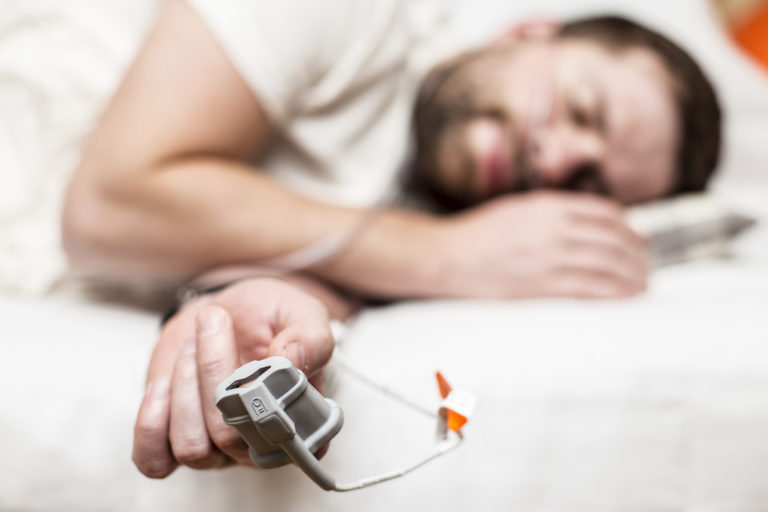Women living with endometriosis know that the painful—and often debilitating—symptoms of the condition can affect every aspect of life, from periods and mental health to fertility and sex life.
With endometriosis, tissue similar to the tissue that lines the uterus (known as the endometrium) grows outside of the uterus, typically on the ovaries, fallopian tubes, pelvic tissue, or bladder. During the menstrual cycle, endometrium-like tissue behaves like it would if it were in the uterus—it thickens, breaks down, and bleeds, leading to inflammation, scar tissue, adhesions, and cysts. The symptoms of endo often include intense cramping, chronic pain, heavy menstrual periods, fatigue, and infertility.
According to a 2017 study by the National Institutes of Health, two-thirds of women with endometriosis experience some form of sexual dysfunction, including painful sex, known as dyspareunia. Some treatment options for endometriosis, including hormonal treatments and hysterectomy, can cause vaginal dryness, further creating pain and discomfort during intercourse. So, how can you enjoy sex while living with endo?
Communicate with your partner

Intimacy is a deeply personal topic, and it’s normal to feel awkward talking about intercourse with your partner. However, setting aside some time to have an honest conversation with your partner about your symptoms and discomfort can help them understand your situation better and explore possible alternatives.
To make the situation easier for your partner, try taking them to your doctor’s appointments to help them feel included in your support system. If the topic of intimacy feels too uncomfortable to bring up, consider marriage counseling or couples therapy. Whether your relationship is suffering from intimacy problems, emotional distance, or communication difficulties, marriage counseling can help couples reconnect and rebuild trust. To encourage open communication with your partner, contact the mental health experts at the Therapy Group of DC to create a fine-tuned treatment plan for your relationship.
Try different positions
While some women say any sex position causes pain, other women find that only certain positions hurt. For example, some women only experience pain during deep penetration, while others experience pain after intercourse, rather than during it.
To make intercourse more comfortable, try finding a position where penetration is shallow or where you have control over the depth of penetration. Because some positions put less pressure on areas of the pelvis that contain endometrial tissue, trying different positions can help you and your partner find the best option. If you’re not sure where to start, experiment with a side-by-side spooning position or penetration from behind.
Explore alternatives to intercourse

Intercourse isn’t the only way to be intimate with your partner. If sexual intercourse is too painful, talk to your partner about trying foreplay, oral sex, or mutual masturbation. According to Laura Monka, author at DO YOU ENDO, out-of-the-box thinking can help women with endometriosis find alternatives to intercourse that they feel comfortable with.
When experimenting with alternatives, try to let your guard down a little bit. Don’t hesitate to tell your partner if you’re in pain or if you don’t feel comfortable doing what he or she is suggesting. Ultimately, trust and comfort are key, and you should never sacrifice your trust and comfort for the satisfaction of your partner.
Use a lubricant
While some women with endometriosis use hormone therapy to treat their symptoms, hormone therapy can worsen vaginal dryness and lead to painful intercourse. A vaginal lubricant designed to combat vaginal dryness can help make sex more comfortable. When choosing a lubricant, keep in mind that oil-based and natural lubricants can damage latex condoms and diaphragms.
If hormone therapy is causing severe vaginal dryness and making intercourse uncomfortable, consider exploring nonhormonal treatment options. Osphena (ospemifene), the first and only FDA-approved, once-daily, oral, non-estrogen medication, can reverse certain changes in vaginal tissue caused by menopause to combat severe vaginal dryness. To save money and learn more about the use of Osphena, visit USARx to find discounted prescription medications from nearby pharmacies.
Endo and its symptoms can make intimacy more difficult, but that doesn’t mean you need to put your sex life on hold. Ultimately, experimenting with different options and communicating with your partner can help you keep the passion alive in your relationship while helping you feel more comfortable.





